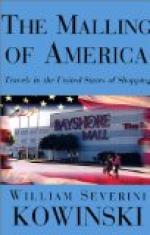Feb. 5th.—Arrived at Baltimore, and hired a caravan with four horses, which is here called a stage: the same afternoon we arrived at the Susquana. This noble river, which is here about a mile and a quarter wide, was frozen hard. Our advanced guard crossed the day before, in a ferry boat: this circumstance will give you some idea of the severity of the cold in this climate. A negro slave, belonging to the ferry, undertook to drive our stage over the river for two dollars, which his master put into his pocket, and ordered Sambo to proceed; the fellow drove boldly, and was across in a few minutes, the ice cracking most horribly all the way. I suppose I need not inform you, we were not in the carriage.
On the evening of the 7th we slept at Wilmington, a pleasantly situate town on the banks of a creek, which joins the Delaware, about thirty miles below Philadelphia. There are about thirty square-rigged vessels, beside sloops, and schooners, belonging to this port, which was originally a danish settlement.
The next morning I walked to Brandywine, to see the grist mills, which are said to be the best in the United States. About five miles from this village was fought the battle of Brandywine. This was Washington’s last effort to stop general Howe’s progress, and save Philadelphia. The royal army being victorious, they got possession of that city without opposition. General Washington, after rallying his troops, took a very advantageous situation on a chain of hills, a few miles west of the British army.
We dined at Chester. This little town is situated on the Delaware, and is the same to Philadelphia that Gravesend is to London. Ships outward bound here receive their passengers, &c. &c.
At four the same day, arrived in this city, distant from Annapolis one hundred and forty one miles, and from Baltimore one hundred and eleven. Farewell.
Yours, &c.
* * * * *
Philadelphia, March 1st, 1794.
DEAR SIR,
I perfectly agree with you, that the form of government in a great measure affects, or rather forms the manners, and way of thinking of the people; but must decline answering the queries in your last, at least for the present. I have not been long enough in these states to draw any fair conclusions on these subjects; but that you may not be wholly disappointed, I send you two anecdotes, on which you may depend.
Peter Brown, a blacksmith of this city, having made his fortune, set up his coach; but so far from being ashamed of the means by which he acquired his riches, he caused a large anvil to be painted on each pannel of his carriage, with two naked arms in the act of striking. The motto, “By this I got ye.”
Benjamin Whitall, high sheriff for the county of Gloster, West Jersey, being obliged soon after his appointment to attend an execution, not approving of Jack Ketch’s clumsy method of finishing the law, fairly tucked up the next criminal himself. Such behaviour in Germany would have branded him with eternal infamy, but is in this country (I think justly) thought a spirited action of a man, who was above receiving the emoluments of an office, without performing the most essential duty annexed to it himself.




